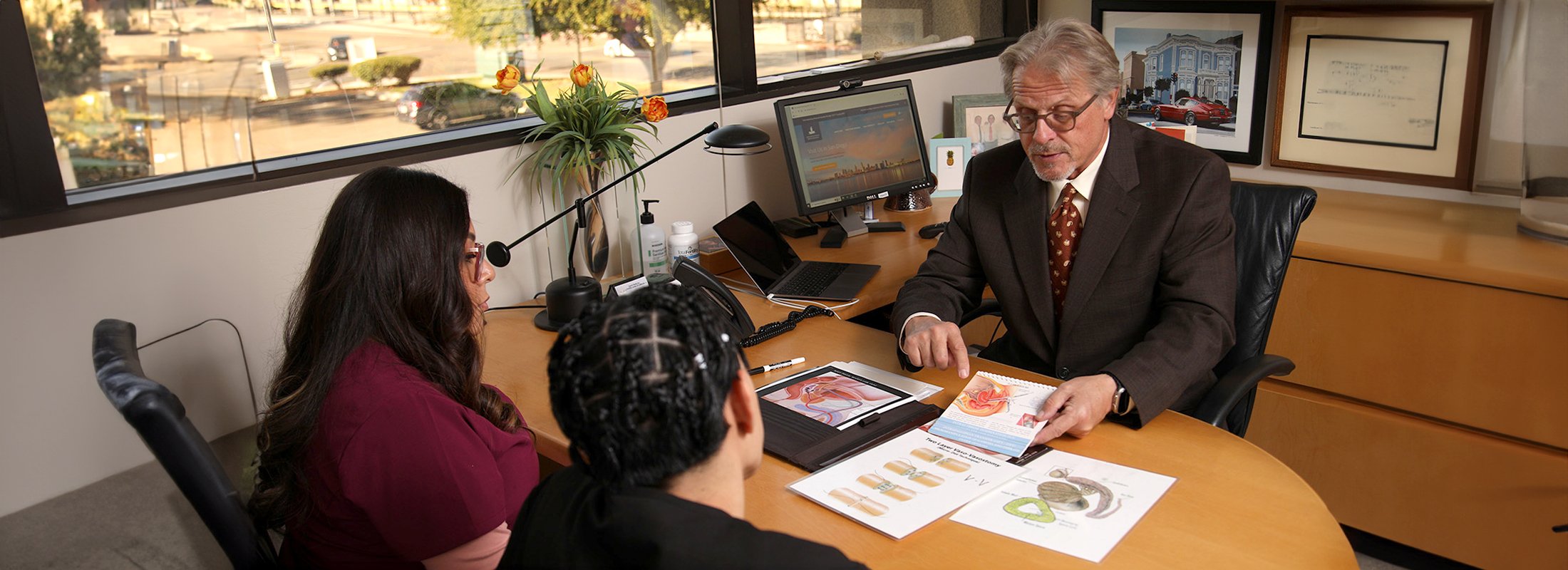Gender & Sex Selection
The individual sperm which fertilizes an egg is the sole determinant of the sex of a child. If that sperm carries an "X" chromosome, it will result in a female. If it carries a "Y" chromosome, a male will be born. In certain situations, a couple will have a strong gender preference.
- Sex Selection - FCC & The Ericsson Method
- Success Rates of Sex Selection
- Sex Selection Frequently Asked Questions
Sex Selection - FCC's Proprietary Technique & The Ericsson Method
At the Fertility Center of California, Sperm Bank Inc. we have developed our own proprietary technique for gender selection based off The Ericsson Method of sex selection, modifying it to provide even greater results. The Ericsson Method of sex selection is a technique based on the fact that sperm carrying the Y chromosome move somewhat faster than sperm carrying the X chromosome which are slowed down by the extra 'leg' of the X chromosome. During this laboratory process, sperm must swim through a sticky protein liquid (albumin) because in a given period of time, more Y-bearing than X-bearing sperm will speed through the albumin. By repeating this process, a sperm concentrate is obtained which contains a higher percentage of Y-bearing or X-bearing sperm (depending on which procedure is selected) than the original sperm sample. The sperm is then be used in intrauterine insemination (IUI).
IMPORTANT: Please understand that this technique is only a way to try to increase the odds of conceiving either a male or a female child.
Success Rates of Sex Selection
Clinical data suggests that The Ericsson Method of sex selection produced a success rate of 70-72% for male sex selection, and 69-75% for female gender selection. To date no research has conclusively disproved the value of the technique, nor has any study proved conclusively that it consistently produces high success rates.
Of course, patients must also understand that there is no guarantee that any particular insemination using sex-selected sperm (or any semen sample, for that matter) will result in conception, or that if conception occurs, that the pregnancy will be carried to term.
Sex Selection Frequently Asked Questions
Yes. Thousands of healthy babies have been born in the United States and other parts of the world.
The average woman conceives in about three cycles. Some conceive sooner than others. Human reproduction is not a very efficient process as evidenced by the fact that only about 20% of couples trying to conceive naturally do so in any given month.
Women who have irregular cycles are accepted for this procedure, but usually take longer to conceive, because they ovulate less frequently and unpredictably. This makes it more difficult to choose a proper day for insemination. Hormone tests are of some help in this matter. We recommend that the female be evaluated by a fertility specialist prior to initiation of procedure.
The process is totally confidential. Our staff will release no information about you unless it was authorized.
Experience indicates that the course of a pregnancy resulting from sperm isolation is no different from one conceived naturally.
The likelihood is no greater or less than that of a natural conception, which is presently estimated at one out of four pregnancies.
No. All artificial insemination studies, whether performed with fresh, frozen, washed or isolated sperm, show no greater occurrence of birth defects when compared to natural conception.
The outcome of the pregnancies can never be guaranteed. The statistics for each procedure will be discussed with you before proceeding.
We suggest that the insemination take place within one hour of completing the separation procedure. A washed specimen can be safely kept for a couple of hours prior to insemination. In addition, the Fertility Center of California, Sperm Bank Inc. can maintain the washed specimen in a special medium for 6 hours should the insemination be delayed.






